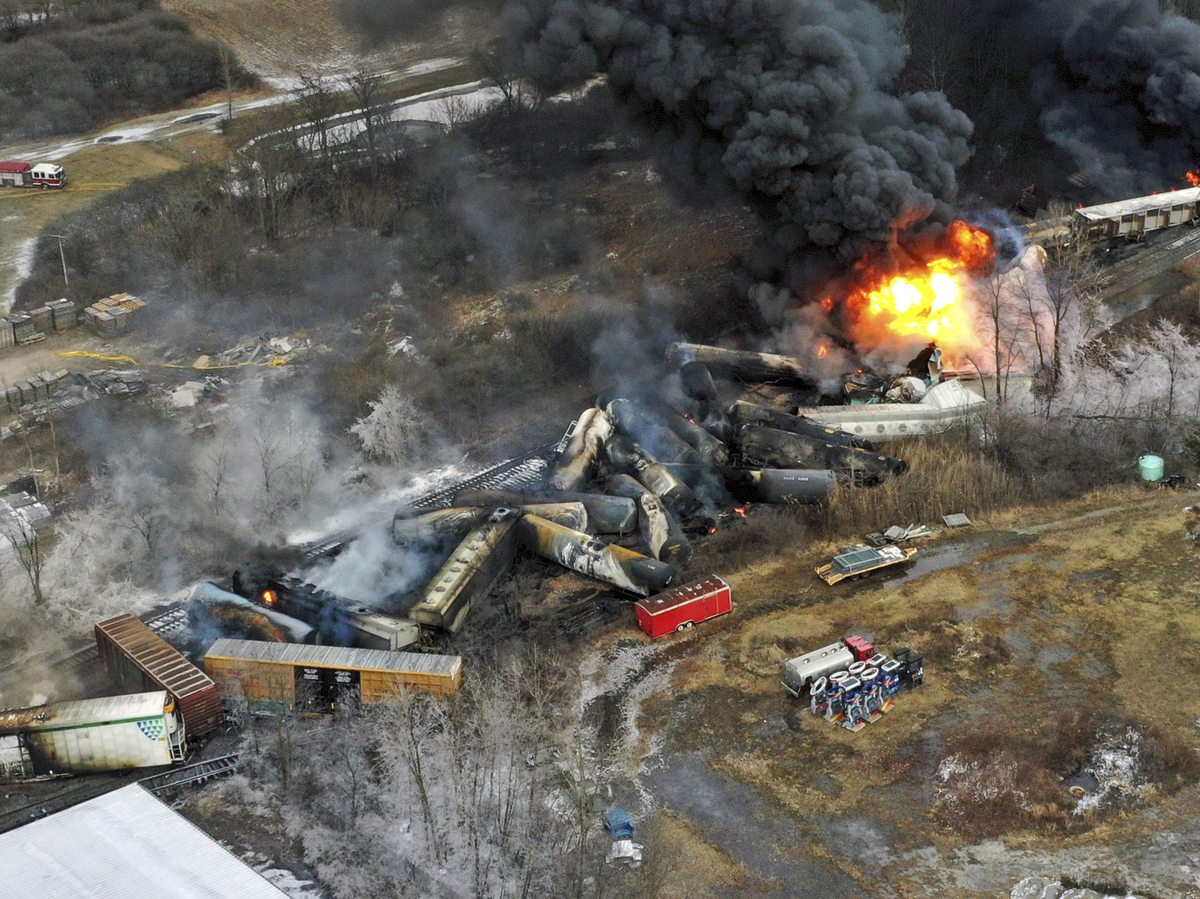
This photo taken with a drone shows portions of a Norfolk Southern freight train that derailed Feb. 3 in East Palestine, Ohio were still on fire on Feb. 4. Gene J. Puskar/AP hide caption

This photo taken with a drone shows portions of a Norfolk Southern freight train that derailed Feb. 3 in East Palestine, Ohio were still on fire on Feb. 4.
Gene J. Puskar/APWhen a fiery, toxic train wreck forced residents of East Palestine, Ohio to evacuate last February, the crash and its aftermath became a national flashpoint and a hot button issue on both sides of the political aisle.
Alan Shaw, the CEO of Norfolk Southern - the freight railroad responsible - found himself in front of Congress, grilled by bipartisan lawmakers.
Shaw insists the company is continuing its commitment to help East Palestine recover, and that they are at the forefront of improving safety in the rail industry.
Host Scott Detrow speaks with Shaw about how the company hopes to become "the gold standard" in rail safety.
Email us at
This episode was produced by Erika Ryan and Karen Zamora. It was edited by Jeanette Woods. Our executive producer is Sami Yenigun.

 Live Radio
Live Radio